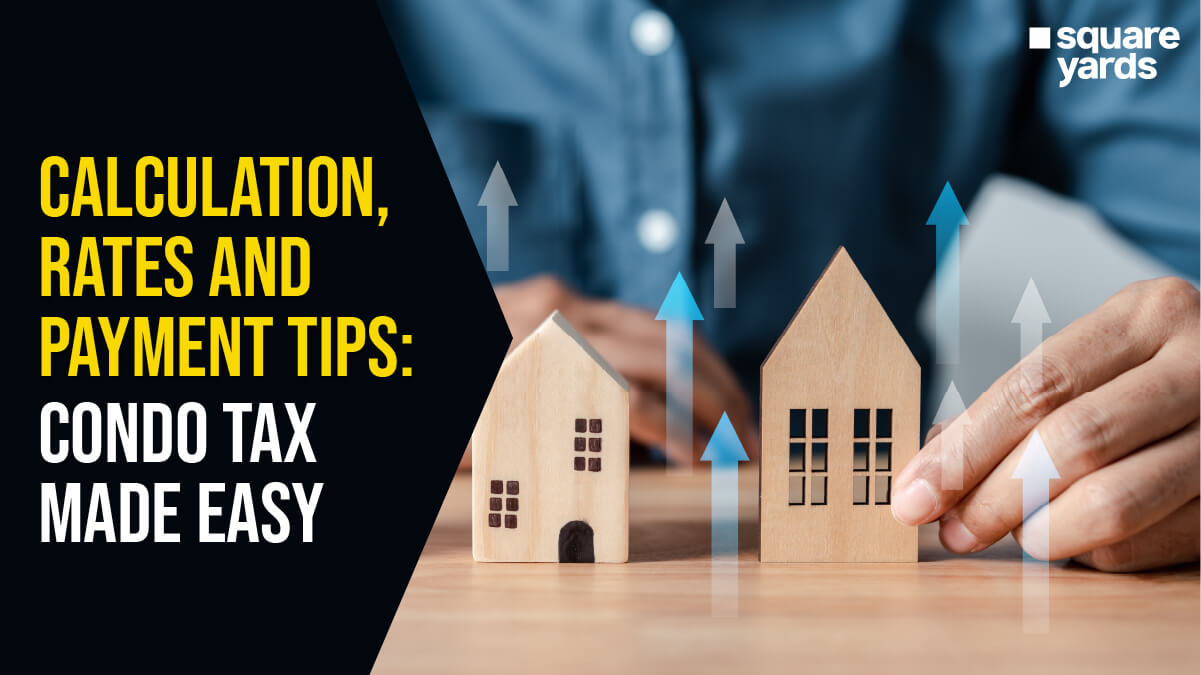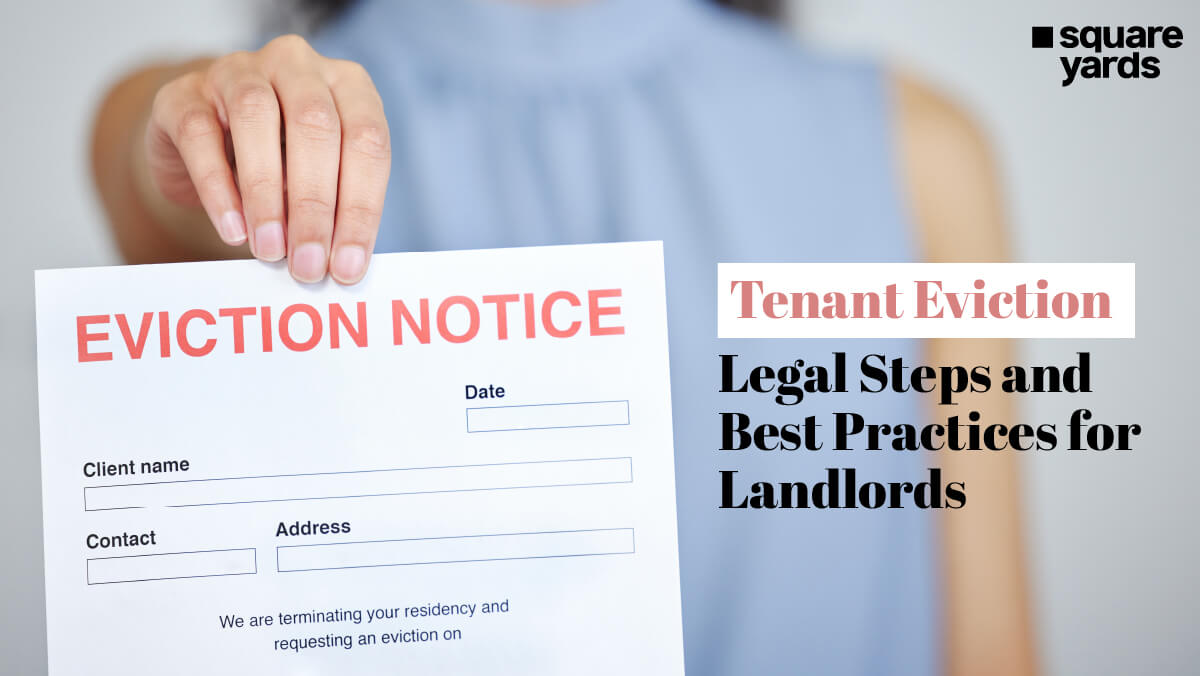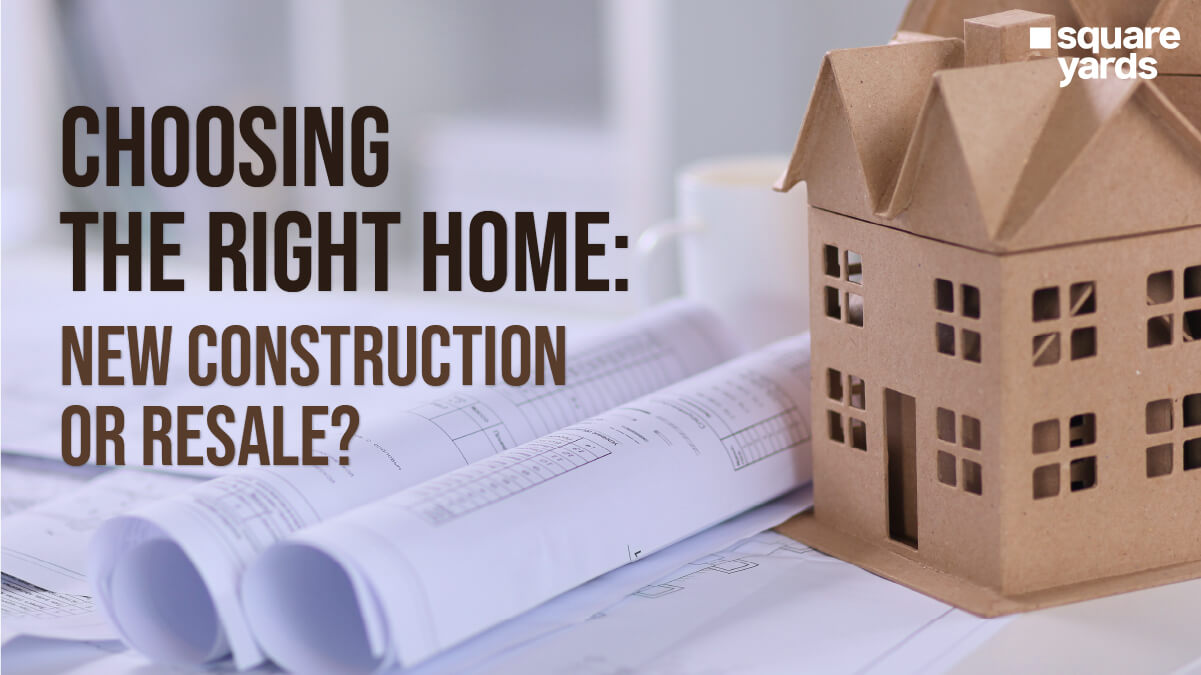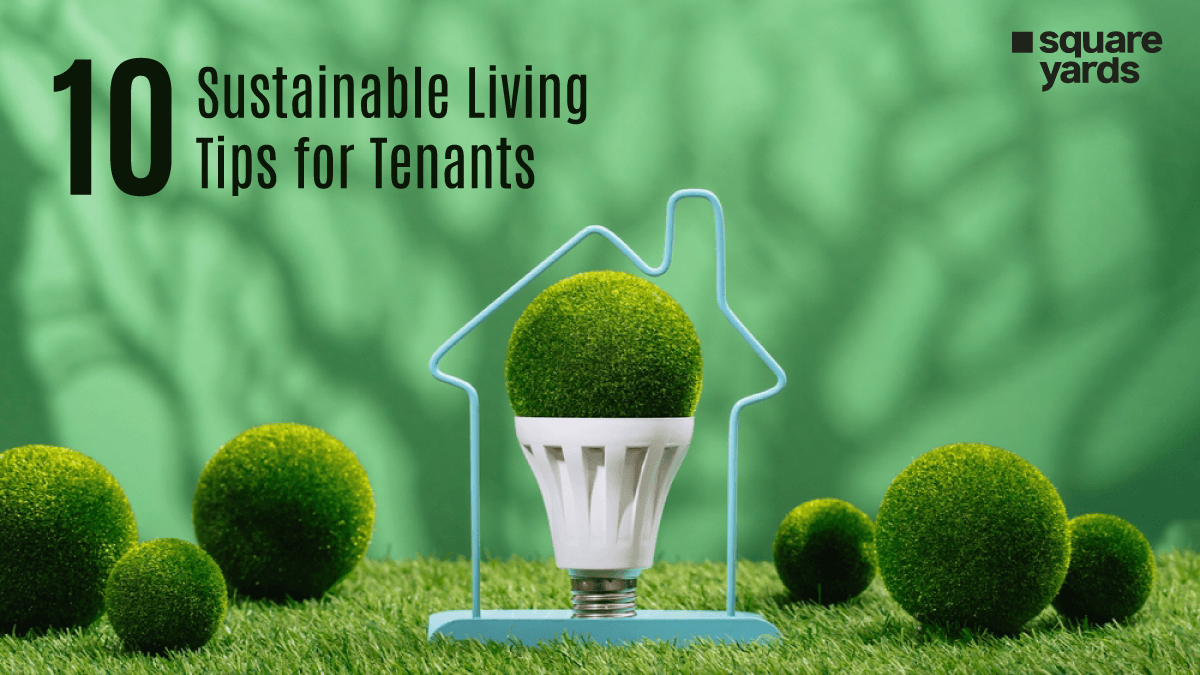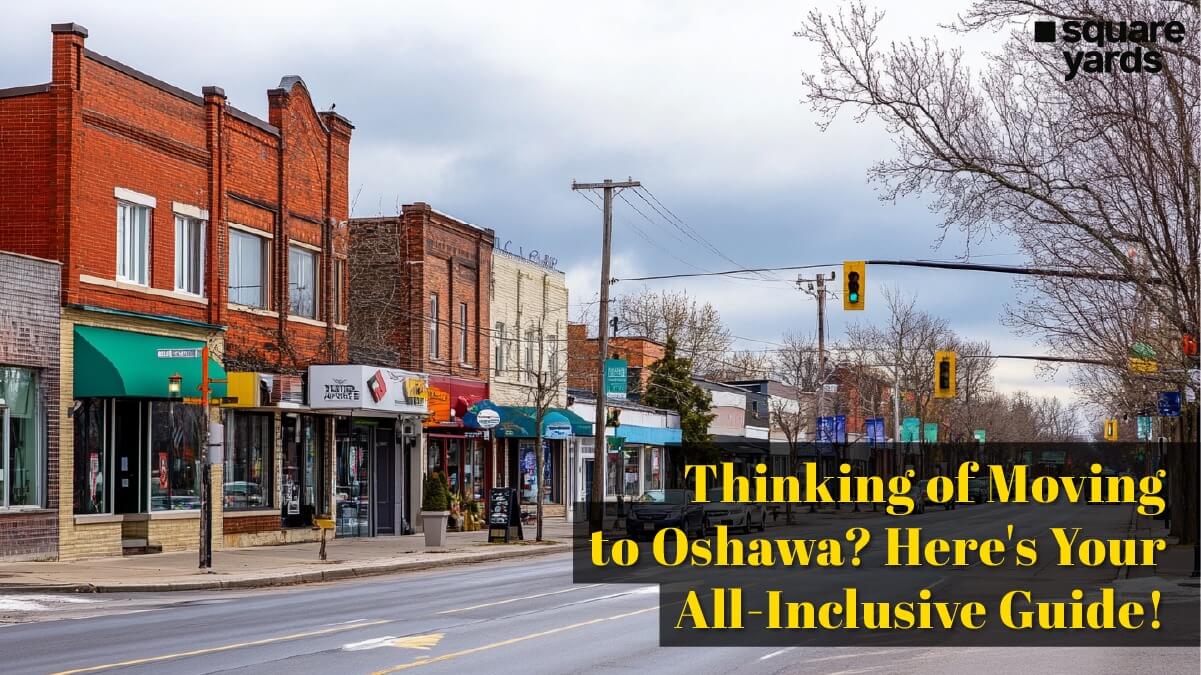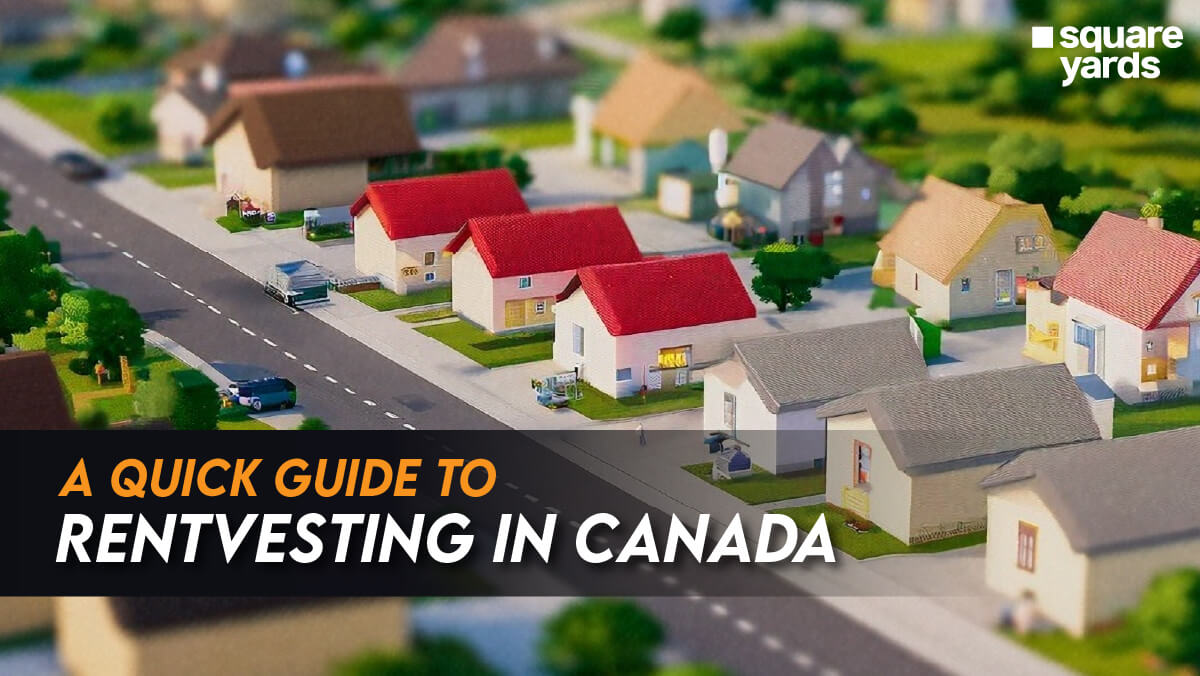Are you a new condo owner? It must be an exciting step to have your own space. However, are you aware of the financial responsibilities that come with it? There is something called the “Condo Property Tax”, which you might be unfamiliar with. Worry not; we are here to make sense of it in the simplest way possible. In this blog, you will understand the basics of property tax rates in Canada, including how a condo tax is calculated and guidance on how to budget it effectively. By the end of this guide, you will be a confident condo owner who is fully prepared to handle every aspect of condo ownership in Canada.
Understanding Condo Property Tax in Canada
The word ‘condo property tax’ might sound unfamiliar if you are new to condo ownership. In simple terms, condo property tax in Canada is a fee paid annually by condo owners to support essential community services such as maintaining public parks, repairing roads, and maintaining transit systems. Unlike the condo fees you pay for the upkeep of your building, the condo property tax goes towards services that everyone in your city or town can use.
The condo tax is calculated based on the value of your condo and the local tax rate set by your municipal government. These rates vary from city to city, so the amount you pay will depend on where your condo is located and how much it’s worth. Understanding this tax can help you budget for this ongoing cost and ensure you’re financially prepared to be a condo owner.
Are Condos Subject to Property Tax?
It might be surprising for a new condo owner to know that condos are subject to property taxes, just like a house. A common point of confusion for new owners is understanding that condo tax is entirely separate from your monthly condo fees. While condo fees cover the building’s expenses (like cleaning the lobby, maintaining shared spaces, and fixing elevators), property tax goes toward services outside your building that everyone in your area uses. Knowing that property tax is a separate, regular expense can help you plan better as a condo owner, ensuring there are no surprises down the road.
Breaking Down the Condo Property Tax Calculation
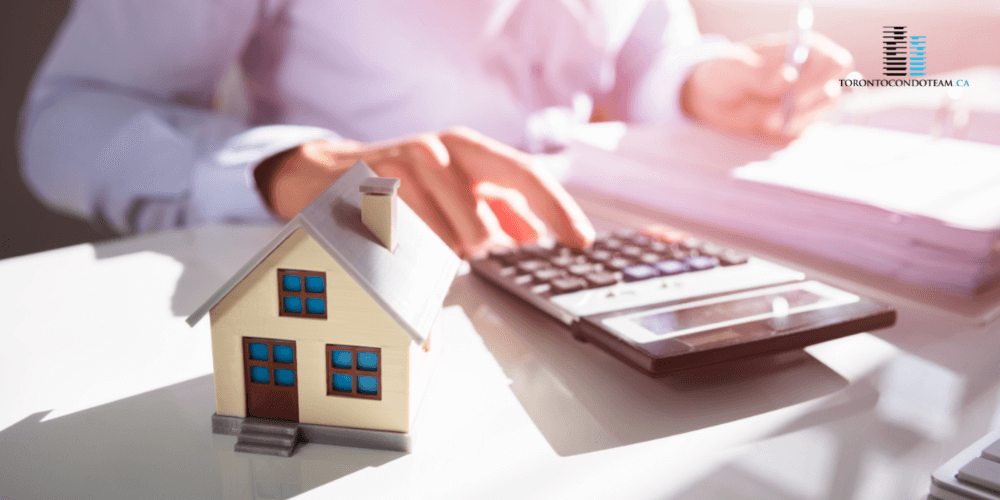
If you’re unfamiliar with property taxes, don’t worry—calculating condo property tax is simpler than it sounds. Condo property tax is based on the value of your condo and the tax rate set by your city or town.
The Value of Your Condo
This is an estimated value of what your condo is worth. A local assessment agency, such as Ontario’s Municipal Property Assessment Corporation, determines it every few years. This assessment is based on the condo’s location, size, and amenities. It is important to note that the higher the assessed value, the more property tax you’ll pay.
The Local Tax Rate
The local government of your city or town sets a tax rate known as the “mill rate”. This small percentage is applied to your condo’s assessed value, which you’ll pay as property tax. This rate can vary significantly from one area to another, depending on factors like community needs, local infrastructure, and budget requirements.
Condo Tax Calculation: Using the Assessed Value and Mill Rate
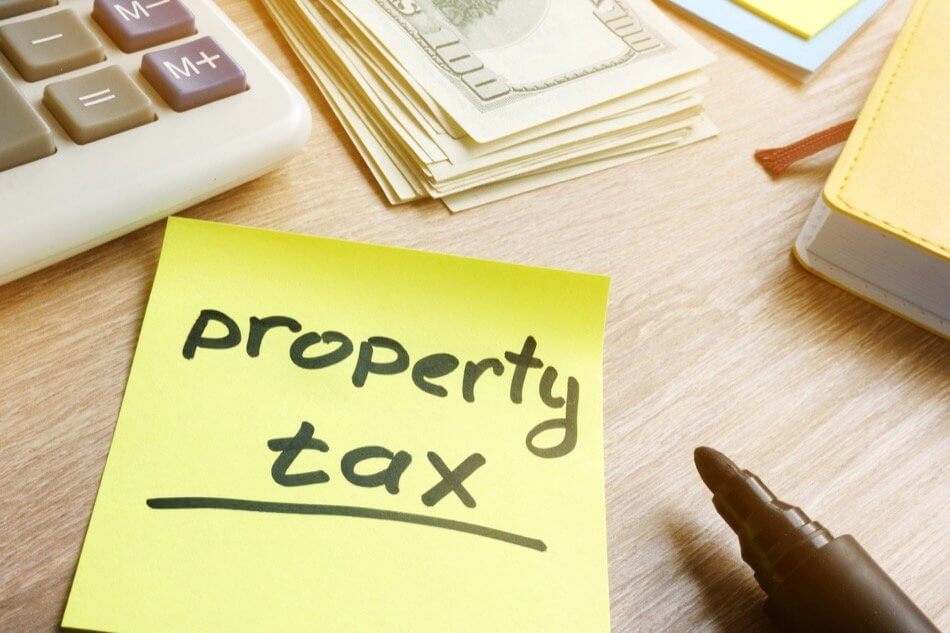
Calculating condo property tax might seem tricky, but it comes down to a straightforward formula. All you have to do is multiply your condo’s assessed value by the mill rate (or tax rate) set by your local government. For instance, if your condo has an assessed value of $300,000 and the mill rate is 1%, your annual property tax would be calculated as:
$300,000 x 0.01 = $3,000.
This straightforward calculation helps determine your yearly tax amount, ensuring that each property owner contributes fairly to community services.
Key Influences on Condo Property Tax Rates
Several factors impact the property tax for your condo, meaning the amount you pay may vary depending on specific aspects of your property and community. Some of the key factors are listed for your understanding:
-
- Condo Location: Condos in urban areas with extensive amenities and infrastructure, such as public transportation and parks, may have higher property tax rates to support these resources.
- Community Development: The region’s development goals play a vital role in determining your condo property tax rates in Canada. For example, living in a growing neighbourhood will have higher tax rates to fund new schools, roads, and other infrastructure improvements.
- Size of the Property and Features: Larger condos or those with premium features greatly impact the overall tax amount, resulting in a higher assessed value.
- Local Government Budget: Each year, municipalities review their budgets for public services, which can lead to adjustments in the property tax rate. When funding requirements increase, tax rates may rise accordingly.
- Type of Property: Condo taxes are levied differently according to their type: commercial or residential. Commercial condos are usually charged higher rates due to their potential for income generation.
Ways to Access Your Condo Property Tax Rate
As a condo owner, you must remain informed about the property tax rates and prepare for upcoming payments. Finding your condo property tax rate is easy with a few reliable resources:
-
- City or Town Websites: Most local government websites provide up-to-date property tax rates, often listed under a property tax section. You can usually find mill rates, assessment details, and payment options.
- Online Property Tax Calculators: Many municipalities and financial websites offer property tax calculators where you can enter your condo’s assessed value to estimate your tax amount.
- Local Tax Offices: If you prefer direct assistance, contacting your local tax office can provide accurate information and answers to any specific questions about your condo’s tax rate.
Your Guide to Paying Condo Property Taxes
As a condo owner, paying your condo property tax is straightforward and has multiple convenient methods. These methods allow you to manage your taxes in the way that suits you the best:
-
- City or Town Website: Most municipalities offer secure online payment options through their official websites. To make a payment, you only need to have your property tax bill handy and pay by debit or credit card.
- Banking Options: Major banks let you pay online, over the phone, or by visiting a branch in person. The simplicity of this method lies in the fact that you can fit into your regular banking routine.
- By Mail: Although less common, some municipalities still accept payments by mail through cheques or money orders. You can contact your local tax office for the instructions.
- Automatic Payments: Set up automatic payments. This option automatically deducts the tax amount from your bank account monthly or quarterly.
- Included in Mortgage Payments: Some lenders allow you to combine property taxes with your mortgage payment. This way, the tax amount is spread over your monthly mortgage payments, making it easier to budget.
Extra Insights for Condo Owners on Property Tax
As a condo owner paying property taxes, you might face certain challenges. However, with the right considerations and tips, you can manage your property tax smoothly, keeping your finances on track:
-
- Check for Tax Rebates or Credits: Certain tax relief programs may be available based on your income, age, or other qualifying factors. For instance, the Ontario Energy and Property Tax Credit can assist eligible low and moderate income homeowners with property tax costs in Ontario.
- Renovations and Tax Assessments: Small changes inside your condo usually won’t affect property tax. However, if major renovations impact the building’s structure, it may lead to a reassessment that could adjust your taxes.
- Planning for Potential Tax Increases: Since tax rates and property assessments can change yearly, it’s wise to set aside a little extra in your budget. This way, you’re prepared if taxes increase.
Wrapping Up: Condo Property Taxes Simplified
In short, condo property taxes are an essential part of condo ownership in Canada, which assists in local funding for development works. Although it seems complex, having a sound understanding of the condo’s assessed value and local tax rate makes tax calculation easier. Moreover, being informed about tax rates, knowing your payment options, and budgeting for possible changes each year can make a huge difference. Keeping these basics in mind and staying proactive about your taxes will make you feel more prepared to handle this annual expense confidently.
You May Also Read :
|
Guide To Condo Renovation in Toronto |
|
|
Know The Small and large condo |
|
|
What is The Bedford Condos in Ontario |
|
|
All About Condo Maintenance Fees |
Frequently Asked Questions (FAQs)
Property tax in Canada is an annual fee based on the assessed value of a property and the local tax rate, which varies by city. This tax supports local services such as road repairs, public parks, and transit.
Condo fees are monthly charges that cover the maintenance of common areas in a condo building, like cleaning, landscaping, and amenities upkeep. They are separate from property taxes.
While all provinces levy property tax, certain First Nations reserves may offer exemptions. Some areas also provide tax credits or rebates for eligible individuals, such as low-income homeowners.
In Vancouver, condo fees generally vary, depending on the building's size, age, and amenities offered.
Typically, condos are more affordable than houses, especially in major cities. However, additional costs like condo fees and property taxes should be considered in overall expenses. What is the property tax in Canada?
What are condo fees in Canada?
Where in Canada has no property tax?
How much are condo fees in Vancouver?
Are condos cheaper than houses in Canada?

